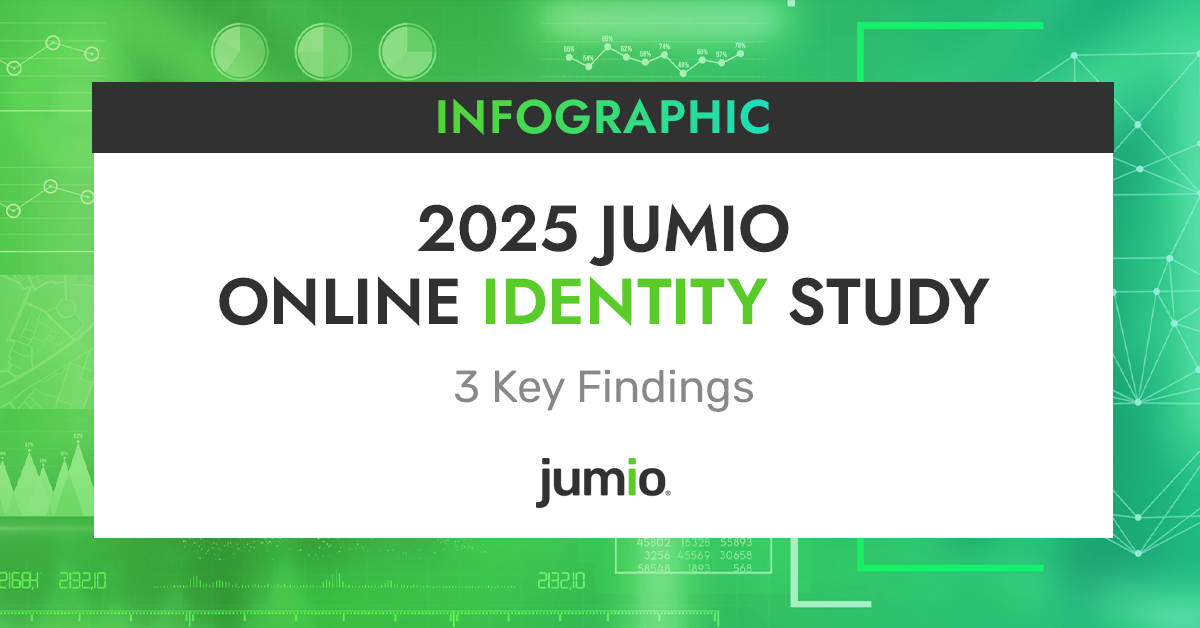
Now in its fourth year, the annual Jumio Online Identity Study explores consumer awareness and sentiment around issues involving online identity, fraud risks, and current methods used to protect consumer identity data. This year’s findings demonstrate a global shift toward distrust and anxiety in digital spaces.
The Jumio study examined the views of more than 8,000 adult consumers, split evenly across the United States, the United Kingdom, Singapore, and Mexico. Sixty-nine percent of respondents say AI-powered fraud now poses a greater threat to personal security than traditional forms of identity theft, and confidence in online authenticity continues to erode amid growing fears of manipulated content and AI-driven deception.
The following infographic highlights key findings from Jumio’s research:
[Text Version]
2025 Jumio Online Identity Study: 3 Key Findings
About the Global Research
Now in its fourth year, the annual Jumio Online Identity Consumer Study explores consumer awareness around issues involving online identity, fraud risks and current methods used to protect consumer data.
This year’s results paint a stark picture: trust in digital life is crumbling under the weight of deepfakes, misinformation and cybercrime.
Total Respondents
8,001 ADULT CONSUMERS
Countries Studied:
U.S.
UK
Mexico
Singapore
Split evenly
Sectors Studied:
Banking and financial services
Government services
Healthcare
Social media and content platforms
Sharing economy and gig platforms
Travel and hospitality
Retail and e-commerce
Telecom providers
Online gaming and gambling
Mobility services
KEY FINDINGS
1. 69% of consumers say AI-powered fraud now poses a greater threat to personal security than traditional forms of identity theft, and confidence in online authenticity continues to erode amid growing fears of manipulated content and AI-driven deception.
Compared to 12 months ago…
AI-powered fraud has become a bigger threat to personal security than traditional identity theft methods.
69% Global average
79% Mexico
74% Singapore
66% U.S.
56% UK
AI-generated scams are harder to detect than traditional scams.
66% Global average
74% Mexico
71% Singapore
60% U.S.
57% UK
2. Consumers increasingly recognize the risks of conducting life and business online, and worry daily about a number of AI-powered fraud tactics.
Q: How worried, if at all, do you get on a day-to-day basis about the following?
Fake digital IDs or documents created using AI (e.g., someone altering a digital ID or driver’s license to steal an identity)
76% Global average
86% Mexico
84% Singapore
67% UK
67% U.S.
Videos or voice recordings that look or sound real but are actually fake (e.g., deepfakes of a celebrity, politician, or even a family member)
74% Global average
83% Singapore
83% Mexico
66% U.S.
65% UK
“As generative AI continues to lower the barrier for sophisticated scams, Jumio’s findings highlight an urgent need for businesses to rethink digital identity protection — not only to reduce fraud, but also to preserve customer trust and digital engagement itself.”
Bala Kumar, Chief Product and Technology Officer, Jumio
3. As consumers prepare for industrialized AI fraud, they look to tech companies for leadership.
93% trust themselves most when asked who they trust most to protect their personal data from AI-powered fraud, 93% said themselves, far more than those who trust government agencies (85%) or Big Tech (88%).
43% say Big Tech holds responsibility when asked who should be responsible for stopping AI-powered fraud, 43% pointed to Big Tech, compared to just 18% who chose themselves.
“Our industry must develop the tools we need to stay ahead of the AI-fraud arms race, because traditional identity verification isn’t going to cut it anymore. From multi-modal biometrics to connected data, Jumio is committed to putting the next generation of identity intelligence in the hands of enterprises.”
Robert Prigge, CEO, Jumio
Get the Full Story
Visit jumio.com/2025-identity-study
Source: 2025 Jumio Online Identity Study: Global Consumer Research
